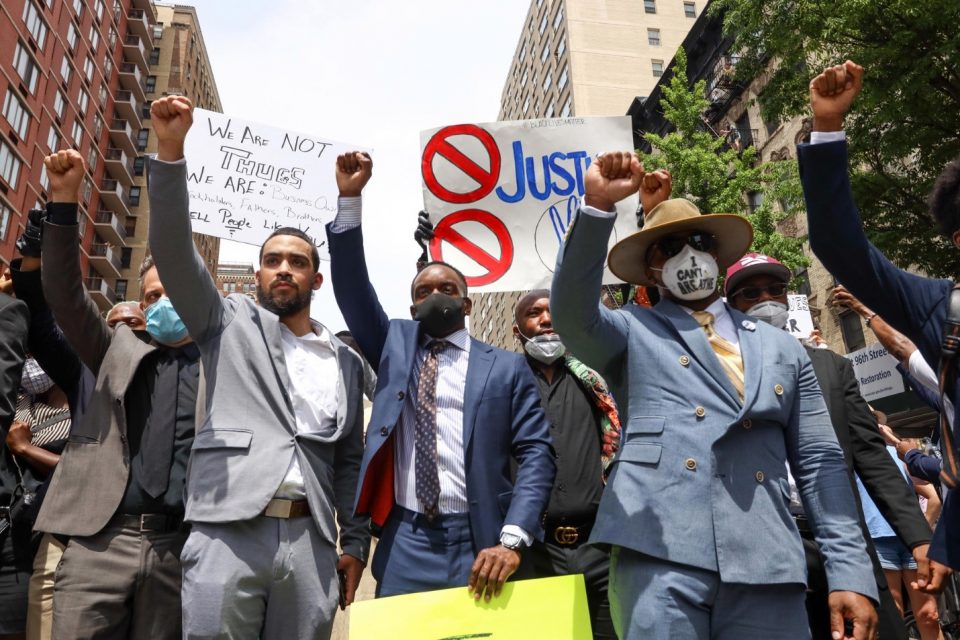And Still Be Safe
A Practical Guide to Defunding the Police
Activists are demanding cities ‘defund the police.’ Here’s what they mean
By Tessa Stuart
The year Philando Castile was shot and killed during his 49th routine traffic stop, this one for a broken taillight, the Minneapolis Police Department was halfway through a highly respected, three-year program designed to restore trust between the community and police. Two years later, MPD had, by its own account, implemented a host of the trendiest police reforms: body cameras, de-escalation and crisis intervention training, mindfulness training. It even rewrote its use-of-force guidelines to emphasize “the sanctity of life.” Two years after that, George Floyd was killed — handcuffed, flat on his stomach, held down by three MPD officers, including Derek Chauvin, pressing his knee into Floyd’s neck.
Now activists in Minneapolis are calling for more than just reform: They want the Minneapolis Police Department defunded — and those calls are catching on elsewhere as demonstrations against police brutality sweep across the country and peaceful protesters are met with more barbarism for speaking out against it.
Defunding the police does not mean stripping a department entirely of its budget, or abolishing it altogether. It’s just about scaling police budgets back and reallocating those resources to other agencies, says Lynda Garcia, policing campaign director at the Leadership Conference on Civil and Human Rights. “A lot of what we advocate for is investment in community services — education, medical access… You can call it ‘defunding,’ but it’s just about directing or balancing the budget in a different way.”

The concept is simple: When cities start investing in community services, they reduce the need to call police in instances when police officers’ specific skill set isn’t required. “If someone is dealing with a mental health crisis, or someone has a substance abuse disorder, we are calling other entities that are better equipped to help these folks,” Garcia says.
When people get the specific help they need earlier, they’re less likely to end up in the kind of dangerous situation police might be called to defuse — situations that often turn deadly for those individuals. According to a study from the Treatment Advocacy Center, a person with an untreated mental health issue is 16 times more likely to be killed by police than other members of the community — a statistic borne out in the deaths of Antonio Zambrano-Montes, reported “behaving erratically” before he was shot in Pasco, Washington, and Jason Harris, said to have been “exhibiting bizarre behavior” before he was shot in Riverside County, California.
Police themselves will admit this — that they are being called to respond to situations beyond the scope of their job. “We’re asking cops to do too much in this country,” Dallas Police Chief David Brown said in 2016, after five of his officers were targeted by a mass shooter. “Every societal failure, we put it off on the cops to solve. Not enough mental health funding, let the cops handle it… Here in Dallas we got a loose dog problem; let’s have the cops chase loose dogs. Schools fail, let’s give it to the cops… That’s too much to ask. Policing was never meant to solve all those problems.”
The same logic, Garcia says, can and should be applied to nonviolent crimes as well — as it was before the “Broken Windows” era of policing, when the philosophy that small visible crimes must be punished or they’ll beget larger crimes became popular in police departments around the country.
Consider the fact that four Minneapolis police officers responded to a 911 call that described a minor, nonviolent crime. “George Floyd is the perfect case to look at,” Garcia says. “What he was accused of — what the police were called for — was a nonviolent offense: trying to use a fake $20 bill. If we reduce the number of crimes that exist or repeal ordinances which are really bloated with nonviolent offenses that were created during Broken Windows, it will allow police to focus on violent crime — on the crimes where they are actually needed — instead of criminalizing the poor.”
In Minneapolis, the groups Reclaim the Block and the Black Visions Collective are lobbying for $45 million worth of MPD’s budget – $193 million in 2020 — be redirected into violence prevention programs, youth homelessness programs, an opioid taskforce and mental health response team. They’ve had a track record of success — last year, they convinced the city council to shift $1.1 million from the police budget to violence prevention efforts.
As the protests continue around the country, activists in New York, where the police department’s budget is poised to swell to nearly $6 billion in 2021, and Los Angeles, where LAPD’s funding was increased this year to $1.8 billion, are mounting their own defunding campaigns. The first step for anyone interested in pushing for a re-thinking of their city’s priorities is to get involved in the budgeting process by attending city council meetings and speaking. The Leadership Conference on Civil and Human rights created a toolkit, praised earlier this week by former President Barack Obama, with more resources and information on how to get involved.
Divesting from police and re-investing in social services isn’t the end of the solution. It wouldn’t fix the systemic problems that caused Breonna Taylor’s death or Tamir Rice’s or the deaths of so many of other black men, women and children senselessly killed by police. But it can be a start.
“A budget is a moral document, and where cities invest their money speaks to their values,” Garcia says. “People actually have a lot more power than they realize and they can make a ton of change at the local level.”


[…] Police reform – redirecting funds and forces. Police are needed for crime not human issues like mental health, homelessness, or drug use. Forces need to protect and serve us all. […]